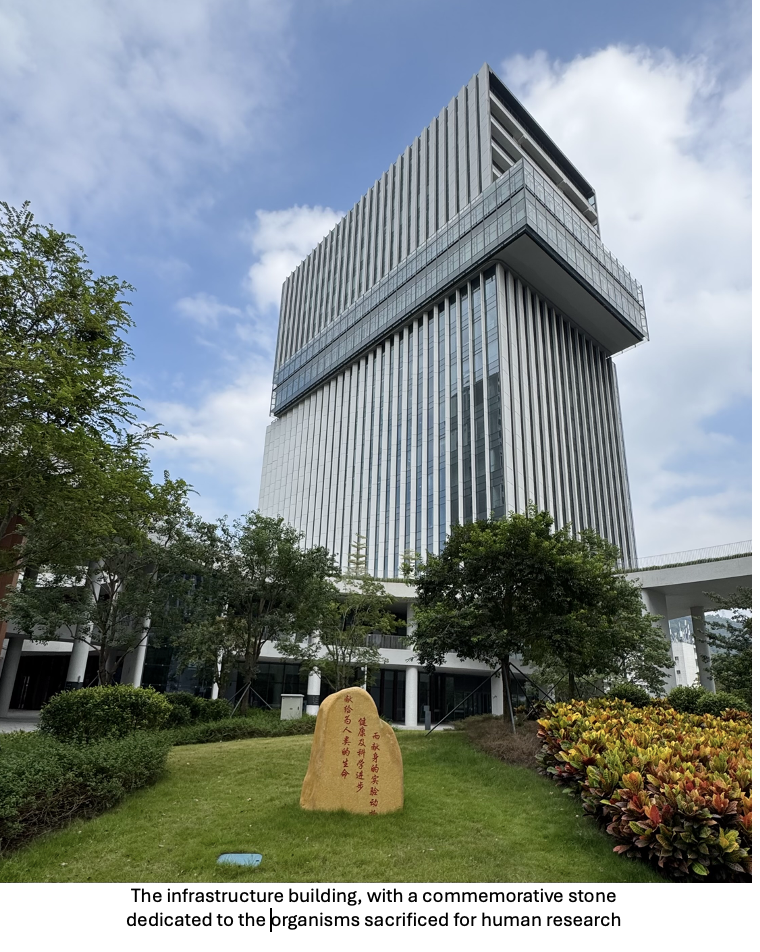In Shenzhen’s science city of Guangming, close to the new campus of Sun Yatsen University, the Shenzhen Bay Laboratory is presently being transformed into the Shenzhen Institute of Synthetic Biology, http://www.isynbio.org.cn/index_en.aspx. The center’s infrastructure building, which has already been completed, rises in the middle over 17 floors and is indeed impressive: a total of 9 biofoundries are installed on the upper floors. They are about to go into operation and are expected to generate combinatorial variants of genes around the clock and without human intervention starting from spring 2025, and express them in microbial hosts in 9 test stations.

Robots are responsible for supplying variants and media and transporting them between the workstations, but they can do even more: they also transport the expressed gene products via the building’s elevators to the floors below, where spectrometric assays of all kinds, HPLC-MS or Raman spectroscopes are available for fully automated high-throughput measurements. In still another floor, the “hits” from this high-throughput concept can then be turned by human operators into production strains in bioreactor relays for increased product yields, and the best variants can even be scaled up to a 150 L scale.

The megacity of Shenzhen has made this topic one of its research priorities. Those among the 50+ PIs I spoke to are confident that this enormous and expensive infrastructure will pay off and set an unprecedented pace in the optimization of biocatalysts for industrial processes and beyond. They should know, because they have already been PIs either in pharmaceutical industry or in the best training institutions from all over the world, such as CalTech, MIT, Harvard University or Max Planck Institutes.

